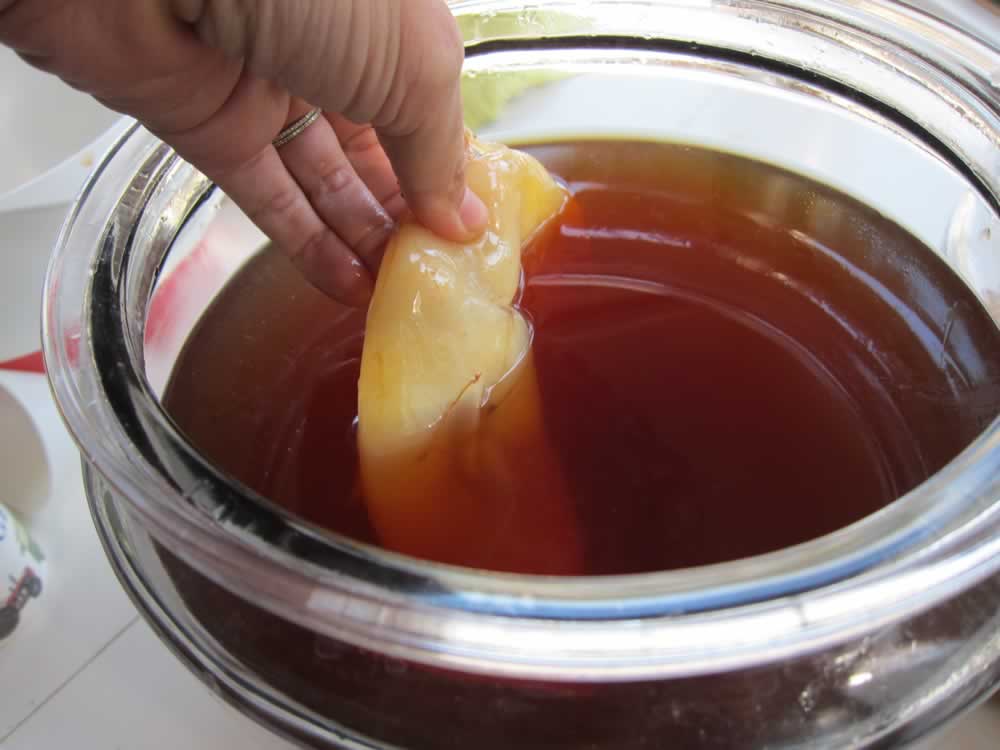Fermented food has made a comeback in recent years, partially thanks to the popularization of Weston A. Price teachings. Fermented foods like sauerkraut and kimchi aren’t considered to be the most appealing types of food; however, research exploring these and other fermented products on gut, brain, and body health has revitalized public interest. The fermentation process encourages essential bacteria such as Lactobacilli and Bifidobacteria to flourish. This makes fermentation a good source of probiotics for vegans, since many fermented foods are plant based. Vegetables are submerged in a salty brine during preparation to kill off dangerous, pathogenic bacteria. The good bacteria break down lactose and other sugars and starches in the food, making digestion easier. And once they reach your gut, they continue to help break down food and keep out bad guys like E. coli and C. difficile.
Fermented Foods
When it comes to fermented foods, whilst in our opinion SAUERKRAUT is the best choice, there are other options available. These options tea, yogurt, kefir and various vegetables. Please first check with your DBM Physician if goat / sheep dairy is permitted on your program.
1. Sauerkraut
Traditional sauerkraut preparation uses water, salt, and cabbage, and very little heat is applied to the final product in order to prevent killing off beneficial microbes. The sour taste comes from lacto-fermentation, or the breakdown of lactose by the probiotic bacteria native to the cabbage. A serving gives you a powerful dose of healthy probiotics that aid digestion, and research has found raw sauerkraut prevents cancer cells from forming. Be sure to purchase raw sauerkraut, or better yet, make it yourself with organic cabbage and Himalayan salt.
2. Kefir
Kefir is a bit like yogurt, except that it’s more of a drinkable consistency. Researchers report kefir may reduce irritation in the intestines, preventing toxins and other pathogens from getting into the blood. If you’re choosing to drink dairy kefir, make sure it’s organic and isn’t loaded with refined sugar. There are options for making your own dairy-free water kefir, and many health food companies online sell kefir grains specifically for this purpose. For more information on the different types of kefirs, see the listing on this page.
3. Kombucha
Made from tea, clean water, sugar, yeast, and bacteria, kombucha has become popular recently for its probiotic qualities. Its fizzy bite is also popular among those used to drinking soda. Research finds this fermented tea fights off E. coli and Staph bacteria in the digestive tract, possibly protecting against illness and aiding digestion. For more information on kombuch visit this page. For more information on kombucha, see this page.
4. Kimchi
This spicy Asian fermented cabbage, similar to sauerkraut, provides you with loads of probiotics. Extensive research indicates it contributes to colon health, lower cholesterol, better thinking, a stronger immune system, healthy skin, and weight loss. Additional research also shows it has anti-oxidative, anti-aging, and immune-supporting properties. Visit this link to see the recipe on a vegan kim chi that is soy, sugar, fish sauce, and salted shrimp – free.
5. Pickles
Raw pickles, much like sauerkraut, are a great introduction to fermented foods. Pickles made by lacto-fermentation are a delicious snack that aid digestion and support a strong immune system. For more information on pickles and the difference between pickles made from vinegar as opposed to brine, as well as some delicious recipes – visit this page.
6. Yogurt
We were almost hesitant to put this information here, but as this is an educational site, we thought it best to inform the readers of all the fermented foods available and then add our ten-cents worth of warnings. Yogurt has many benefits, mostly due to its rich probiotic content. Brands of yogurt that supposedly contain billions of live active cultures may possibly support digestion, and some research indicates it could possibly benefit the skin. Raw, unpasteurized yogurt is ideal if you can handle dairy – BUT DBM do NOT make use of any dairy products from cows in their programs. We even restrict certain people from yogurt, kefir and even goat/sheep cheeses, where necessary. If you choose to ignore our suggestions, be sure you’re choosing yogurt that contains live active cultures, and choose plain, full-fat versions in order to avoid sugar. Yogurt that contains sugar can be counterproductive, as sugars feed pathogenic bacteria and contribute to sugar overload. Our first choice for yogurt would of course be full cream, sugar-free goat or sheep yogurt.
7. Lassi
Yogurt and fermented dairy play an important role in Indian cuisine. Lassi is made by combining yogurt and milk (or water) and sometimes fruit and spices to create a great probiotic-rich drink. It digests quickly, helps restore friendly gut bacteria, and soothes irritation in the colon. Again, we don’t recommend consuming conventional dairy, especially from cows. If you are going to drink lassi, it’s best to find a product using grass-fed, free-range goat milk. Goat milk tends to digest more easily. If you’re vegan, try finding or making lassi with organic coconut or almond milk yogurt. Again we remind the reader that DBM do not make use of any dairy products from cows.
There are other fermented foods available, such as miso, tempeh and natto – HOWEVER, as all of these ferments are made from soybeans AND 98% of the worlds soy crops are GM crops – we do NOT make use of these fermented foods in our programs. It is NOT only the fact that soya is a GM crop that concerns us – but for now – that will suffice.
Other Tips to Support Digestion
Each of these 9 probiotic foods will help restore balance to your intestinal ecosystem, but they’re not the only way to support digestion. Prebiotics, or foods containing inulin, sustain your current gut bacteria by providing them the foods they need to thrive. Probiotic supplements like Floratrex™, my advanced formula with over 23 probiotic strains with prebiotics, are a great way to support your digestive system.






